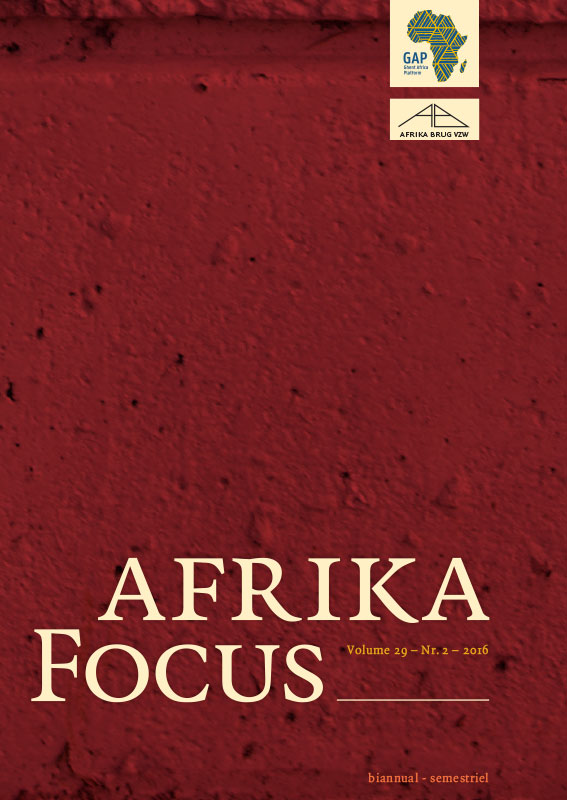Abadaringi. Jeroen Janssen Oogachtend, Leuven, 2015
DOI:
https://doi.org/10.21825/af.v29i2.4857Abstract
Abadaringi is a so-called graphic novel that relates the dramatic events of the 1994 Rwandan genocide through the eyes of both the author and his former students. Before the events Janssen taught in an Arts School in Nyundo. He returned 20 years later to meet ceux de l’Ecole d’Art (which is the meaning of Abadaringi). Using his discussions with them he reconstructs an idiosyncratic history. His respondents do not accuse, they remain sympathetic and open. Janssen clearly does not want to tell us who was right or wrong. Rather, he tries to bring us back to the Rwanda he knew. What results is a (literally) colourful set of testimonies, set in, we might say, 50 shades of green. Don’t expect a profound analysis, but do appreciate his story-telling skills. And if it is the ‘truth’ you seek (which truth ? whose truth ?) then turn to serious non-fiction literature or documentaries . A ‘nice’ read in an unusual format !Downloads
Published
How to Cite
Issue
Section
License
Authors who publish with this journal agree to the following terms
Authors retain copyright and grant the journal right of first publication with the work simultaneously licensed under a Creative Commons Attribution License that allows others to share the work with an acknowledgement of the work's authorship and initial publication in this journal.
Authors are able to enter into separate, additional contractual arrangements for the non-exclusive distribution of the journal's published version of the work (e.g., post it to an institutional repository or publish it in a book), with an acknowledgement of its initial publication in this journal.
Authors are permitted and encouraged to post their work online (e.g., in institutional repositories or on their website) prior to and during the submission process, as it can lead to productive exchanges, as well as earlier and greater citation of published work (See The Effect of Open Access).


